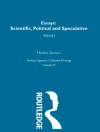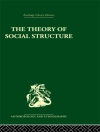A practical resource that your students can return to again and again to guide and coordinate their pluralistic practice, it provides:
- Hands-on guidance to developing pluralistic practice: providing the tools, skills and practice frameworks
- A step-by-step understanding of how the ideas and methods of different orientations can contribute towards a pluralistic way of working
- The tools and understandings needed to work with clients to achieve the most common goals
- The tools and understandings needed to work with clients wishing to address particular issues such as depression, anxiety, addiction, health issues, suicidal thoughts
- An understanding of a range of professional and practice issues relevant to pluralistic practitioners.
Each chapter offers definitions of key terms, several case studies, exercises and points for reflection, further reading, chapter introductions and summaries of key learning points, and overviews of relevant research.
Spis treści
Introduction to pluralistic counselling and psychotherapy – Mick Cooper, Windy Dryden
PART 1: Fundamentals
Assessment and formulation in pluralistic counselling and psychotherapy – John Mc Leod, Julia Mc Leod
From goals to tasks and methods – Terry Hanley, Aaron Sefi, Zehra Ersahin
Metatherapeutic communication and shared decision-making – Mick Cooper, Kate Martin, Fani Papayianni, Windy Dryden
Systematic feedback through the Partners for Change Outcome Management System (PCOMS) – Barry Duncan, Jacqueline Sparks
Client strengths and resources: Helping clients draw on what they already do best – Jacqueline Sparks, Barry Duncan
Core counselling methods for pluralistic practice – Mick Cooper
Part 2: Therapeutic orientations
Humanistic approaches and pluralism – Terry Hanley, Adam Scott, Laura Winter
Cognitive behavioural approaches and pluralism – Terry Boucher
Psychodynamic approaches and pluralism – Laurence Spurling
Existential approaches and pluralism – Mick Cooper, Gerhard Stumm
Narrative approaches and pluralism – Rolf Sundet, John Mc Leod
Integrative and eclectic approaches and pluralism – John Mc Leod, Rolf Sundet
Part 3: Issues and Goals
Helping clients address depression – John Mc Leod
Helping clients address problematic anxiety – Windy Dryden
Helping clients improve their interpersonal relationships – Meg John Barker
Helping clients find meaning in grief and loss – Robert Neimeyer
Helping clients address addictive behaviours – Thomas Mackrill, Bettina Jensen
Helping clients address eating problems – Lynsey Mc Millan
Helping clients with health issues – Julia Mc Leod, Mhairi Thurston, Kate Smith
Helping clients who are suicidal or self-injuring – Andrew Reeves
Part 4: Professional issues
Difference and diversity in pluralistic counselling and psychotherapy – Laura Winter, Feng Guo, Katarzyna Wilk, Terry Hanley
Boundaries: A pluralistic perspective and illustrative case study of the patient-led approach to appointment scheduling – Timothy A. Carey
Ethics in pluralistic counselling and psychotherapy – Lynne Gabriel
Supervision in pluralistic counselling and psychotherapy – Mary Creaner, Ladislav Timulak
Training in pluralistic counselling and psychotherapy – Julia Mc Leod, Kate Smith, Mhairi Thurston
Research and pluralistic counselling and psychotherapy – Terry Hanley, Laura Winter
O autorze
Mick Cooper is Professor of Counselling Psychology at the University of Roehampton, where he is Director of the Centre for Research in Social and Psychological Transformation (CREST). Mick is a chartered psychologist, a UKCP registered psychotherapist, and a Fellow of the BACP. Mick is author and editor of a range of texts on person-centred, existential and relational approaches to therapy; including Working at Relational Depth in Counselling and Psychotherapy (2005, SAGE, with Dave Mearns), Pluralistic Counselling and Psychotherapy 2011, SAGE, with John Mc Leod) and Existential Therapies (2nd edn, 2017, SAGE). Mick has led a series of research studies exploring the processes and outcomes of humanistic counselling with young people. Mick is the father of four children and lives in Brighton on the south coast of England.












